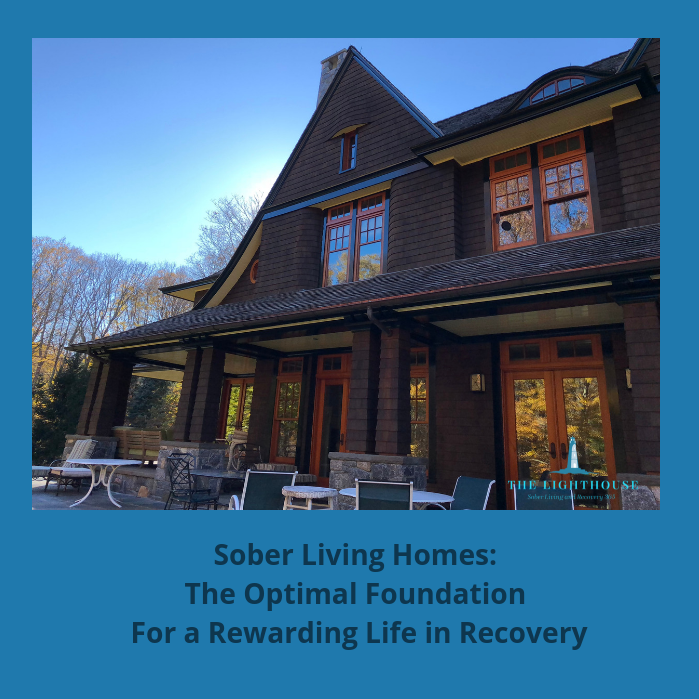Sober Living Homes: the Optimal Foundation For a Rewarding Life in Recovery
Many executives find it challenging to find the time to walk away from life and go to rehab. The thought of having to explain that you or your loved one has had to take a leave to get sober is a blow to the self-esteem.
Substance abuse treatment helps the executive to learn how to handle tenuous situations, overbooked schedules, challenges, and stress both at work or home without relying on alcohol.
Each day in recovery, your need and obsession with using decreases, and your self-esteem begins to soar. During treatment, you learned a sobering fact.
Your early recovery doesn’t begin until your discharge from treatment. Yes, you might have volunteered to enter treatment, but it was a safe place.
Does this sound familiar?
The day will finally come when you’re waiting to be discharged to a sober living home. Your primary clinician assisted you in understanding your options for continuing care. During intake at the inpatient treatment program, you couldn’t wait for the 28-days to begin and end.
It’s natural to think that you’ll be cured of the obsession to drink once you’ve completed that month, but deep-down you knew it wasn’t right.
Of course, you want to get on with your life. After several days, it became easier to handle the new routine. It was like a vacation from the stress of the office and the obsession to drink.
During treatment, you learned that there is no safe way for you ever to drink again.
You learned about your addiction and the coping skills to use to combat triggers, cravings, and urges. You began to believe you could enjoy life sober. Your self-esteem soared form the hard work you were putting in.
But as discharge edges closer, you feared going back into the roles expected of you from your spouse, family, and job. During one on one discussions with your primary clinician, you discussed the idea of aftercare; outpatient treatment, 12 step meetings, and what you can expect during your first year in recovery.
During one session, executive, sober living homes were discussed. You learned sober homes support abstinence while assisting you in building structure and foundation for recovery.
Residing in a sober living home means:
Living sober while under the care of clinical staff and peers doesn’t leave you alone with your free will. As discharge grows closer, the fear of returning to a hectic schedule without alcohol lurks inside.
One solution to resolve this fear is to transition from rehab to a sober living home.
A sober living home is an extension of rehab. While living in a sober house, one can meet the fears of returning to a hectic life head-on with structure and support.
Here are 7 reasons why a sober living home builds the optimal foundation to support early recovery:
1. Sober Living energizes you to push through those early recovery lows, doubts, depression, and anxiety.
Depression, stress, and anxiety are potentially dangerous during early recovery. Self-medicating to treat the symptoms of depression or anxiety is common during this time. It is difficult to experience these feelings, along with the inevitable cravings to use while you’re on your own.
Many executives do not let colleagues get close to their personal lives, so struggling with mental stressors relating to living without alcohol can create feelings of desperation.
When living in a home with others familiar with the process of recovery, you can express your feelings during meetings, with staff, or other peers concerned with your well being.
Many times just knowing you are not alone and that housemates have experienced the same feelings is enough to energize and pull through the early recovery lows.
2. Fear of returning to your old life, role, and habits
When you first leave detox or inpatient treatment, you might fear to respond to your old lifestyle and routine.
The executive lifestyle is demanding and rigorous. The demands upon you can take a toll on health and well-being. The old you found solace in happy hours and open bars. Now you need to find new ways to relax and ease your stress.
Living in a house that supports recovery will help you develop a new routine.
In a sober living home, you will learn ways to cope with stress. Peers can help you practice focusing on new coping strategies, such as:
-
exercise and overall health and wellness
-
nutrition
-
yoga
-
meditation
-
learning to live in the moment
You can ease back into your old roles while living under a roof with a caring staff and community who want to see your recovery prevail.
As your recovery grows stronger, you also serve to strengthen the community. It’s a win-win.
3. Build camaraderie, connections, and support
You didn’t learn to drink your problems away in one night. It took practice and hard work to become dependent upon alcohol. It might have started while you were an undergrad and carried into your professional life. Surely, at some point, you felt obligated to drink with business associates.
While in detox, or treatment, you might hear of sober support and how the opposite of addiction is a connection. Living in a sober environment will help you establish this support and link to the recovery community. Building relationships with supportive housemates can help you understand that you’re not alone.
Coming to terms with your addiction is severe. Your drinking had a way of isolating you from family and friends. Recovery re-connects us to family, friends, and community. The foundation of a sober living home is camaraderie, community, and connection.
Research studies show that positive outcomes of long-term sobriety are higher with social support. Learn to use sober, supportive living in a home geared to fit your specific needs.
4. Sober living creates a buffer between you and relapse
Once detox is complete, you feel lovely. After 28 days of inpatient treatment, even better, but don’t convince yourself into believing you’re ready to return to your old rigorous routines. Early recovery is rewarding. Still, you need to pay strict attention to your old patterns sneaking up on you.
Putting yourself in dangerous or stressful situations such as
-
Long business meetings or extended business trips
-
Conferences and seminars that put you close to your old lifestyle
-
Lavish business lunches and open bars
-
Upscale dinner meetings with fine wines
-
Lack of sleep from long days at the office
The road to recovery has many twists and curves and can throw you off your course. A sober living house will help you hurdle the barriers blocking you from your life of long-term recovery.
Staff and fellow residents will help you unlearn the habits that set you on a course of devastation and destruction.
5. Establishes structure and foundation
Active addiction isolated you from all that was good in your life. Yes, you might have performed your duties to your business, clients, and kin, but still, you felt something was amiss.
You knew when your drinking grew dangerous, but you feared to admit you needed to stop. It’s hard to admit you’ve lost control.
Once you understand the problem is with alcohol or drugs, you may enter a luxury treatment program to help you get sober. Then the day comes that discharge is upon you.
Even though you can’t wait to return to your loved ones and work, fear and uncertainty can take control. You may feel returning to your home, and work will create obstacles and barriers. Your family will not be in treatment while you are away, and their old behaviors and patterns could trigger a relapse.
Sober living homes can help you to establish a strong foundation in recovery.
Establishing connections to sober support, AA, NA, Refuge, or SMART Recovery, a sponsor or recovery coach, will help prepare healthy coping skills to handle the stress and triggers which come from responsibility to family, colleagues, and friends.
Many great professionals before you have taken the path to freedom in recovery. Many more will come down the path while you’re in early recovery. Seek structure and support from these people and establish a network of support to help you cope with your obsession to drink.
6. Positive feedback and encouraging real growth in you.
Learning to handle the pressures of business and finances without getting angry or acting like the old you is difficult. Words of encouragement from housemates and staff create a sense of accomplishment.
In a sober living program, your actions will not go unnoticed. Living with a sober support team and house meetings help you to focus. The team will applaud you for handling a challenge with temperance and grace. Plus, when you’re slipping into old habits and behaviors, the team will keep you in check. Nonetheless, you’ll learn new suggestions and coping skills and ways to handle a situation that could end in relapse at home.
7. Strengthens resolve to change
Most often, while using alcohol or other drugs, one begins to isolate. Keeping a distance from family, friends, and colleagues. Your behaviors will change as feelings of insecurity grow. You eventually find yourself alone with your addiction with nowhere to turn.
The negative voice fills your head with contempt, worry, anxiety, and depression. Learning to cope with the stress of life was managed through the use of alcohol over time.
As you sober up, while in treatment, you will make new connections and began to understand how your negative thoughts kept you battered and bruised.
Meetings, coping strategies, mindfulness, and asking for help can replace the need to drink. A sober home is a place where you will strengthen your motivation to change.
It’s essential to remain mindful of negative thoughts and disparaging self-talk that could lead to frustration and begin a downward spiral back into active use. If you feel that being home alone or with family isn’t safe, you can consider a sober house to ease your transition into recovery.
Living with others who, like you, are in early recovery, will motivate you to establish your relapse prevention plan. It can help learn how to use coping mechanisms and strategies and share your concerns with others in the home. Positive feedback will strengthen your motivation to change.
We enjoy competition, and winning is a great motivator. Living with other executives building a path to success motivates your desire to change.
What step will you take?
Have you completed treatment and wondered what to do next? Confused and fearful about going home to the chaos in life?
Tell us about your discharge to a sober living home and the benefits of living with others who desired and longed for freedom from alcohol or drugs.
If you need more information about taking the next step in your life in recovery, call The Lighthouse today and learn how to:
Recover. Restore. Rebuild. A better experience and thrive.
There is hope for you or a loved one struggling with addiction to alcohol or drugs. The Lighthouse can help you transition into sober living and recovery coaching. Our admissions staff will assist you in finding the resources you need to connect with The Lighthouse or the proper placement needed to begin your journey of recovery.
Reach out to us and get started today.
Post your questions, concerns, or comments on Facebook and LinkedIn.



